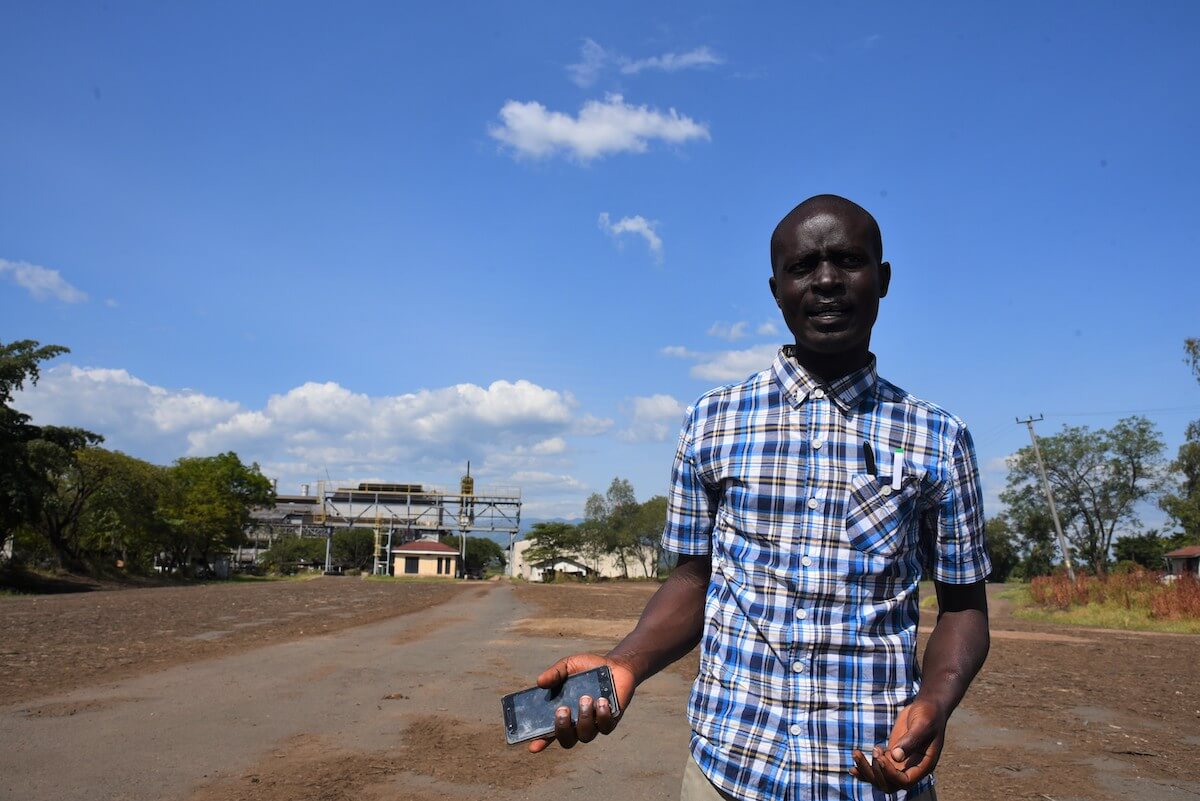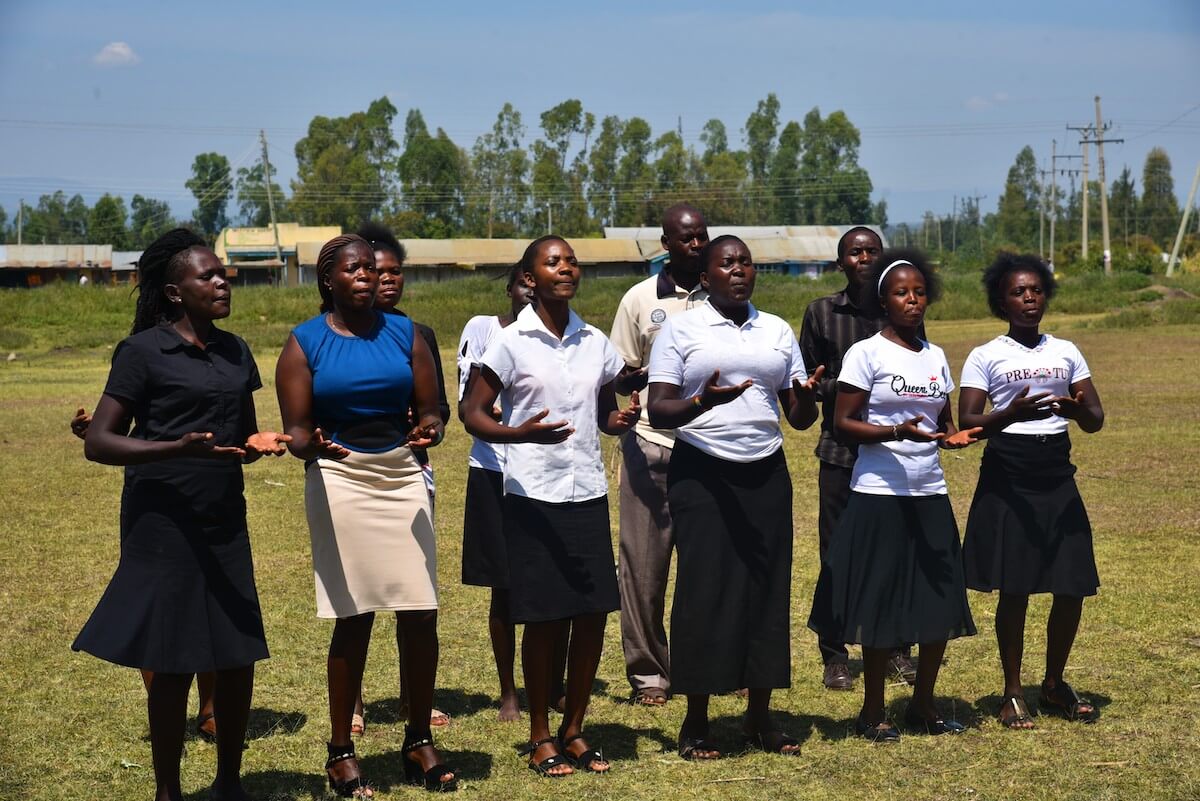
GCED Basic Search Form
Quick Search
当前位置
新闻
Mary Mariach and Christine Lemuya come from two tribes that have been involved in continual clashes in Kenya's ASAL (Arid and Semi-Arid Lands) regions where resources are scarce. Photo: UN Women/Luke Horswell
Across Kenya, local conflicts driven by diverse factors have one thing in common: they’re increasingly being mediated by women. From ethnic tensions to land disputes, some of these conflicts stretch back decades; remaining unresolved despite the lasting instability and violence they create among communities. So women are stepping up to end longstanding strife through local dialogues and outreach, approaches male-dominated leadership has not always been willing to take. But in order to build lasting peace, they need support from both their communities and the state—which some are receiving, and many are not.
Old conflicts, new harm
In the country’s western region, longstanding tensions are driving new security risks in the neighbouring counties of Kisumu and Nandi. Their predominant ethnicities mirror the tribal background of the two leading presidential candidates in this year’s election, and the border region has been identified as a hotspot for elections-related violence.
Dorothy Bonyo, treasurer of the sub-county peace committee in Muhoroni, a town in Kisumu, is witnessing the escalation first-hand: "Tension is increasing […] Our neighbours are effectively political opponents and in the marketplace we are beginning to see hate speech.”
Beneath these simmering tensions are sustained economic pressures that continue to plague the area. It once thrived from a sugar industry that employed around 20,000 people—until corruption and misappropriation of profits decimated the trade, leading to job losses and low cash flow for many families. Oscar Ochieng, secretary of the Muhoroni sub-county peace committee as well as the Kisumu and Nandi cross-border peace committee, explains that in addition to political factors, there is a historical disagreement over land:
"With low employment and little cashflow, kids drop out of school, and there’s a large number of disengaged youth. This leads to stock theft and eventually violent conflict. These companies are located right on the borders and much of the land is fallow. But it is also highly fertile and both communities feel it belongs to them."

Oscar Ochieng, 35, explaining the region's conflict dynamics in front of a near-derelict sugar mill—one of the drivers of crime and stock theft. Photo: UN Women/Luke Horswell
Among Kenya’s pastoral communities, several hundred miles to the north, competition over resources also drives strife. These tribes rely almost exclusively on livestock for their livelihood: moving with their herds, communities have significantly limited access to state provisions, often reporting the highest levels of poverty in the country. Scarcity of water, food and land leads to violent conflict between the tribes—a situation being exacerbated by the current drought crisis in East Africa. Armed bandits launch attacks to steal livestock and property, with people dying in the process.
In the neighbouring communities of Turkana and Pokot, these clashes have been going on for decades. “The two tribes continually raid each other and the other seeks revenge, and it continues,” says Mary Mariach, a member of the Pokot tribe who has been the chairperson of the West Pokot County Peace Committee for 15 years. “This is the main cause of conflict between the Turkana and Pokot communities.”
Christine Lemuya, a peace activist from the Turkana community, describes how the violence spills over into the lives of uninvolved community members, including women and children: “In 2019 I was stopped during a car journey by the Pokots. They stole everything and wanted to shoot us. I persuaded them to take our phones and possessions and let us go.” But, she adds, not everyone is so lucky: “Recently, there was a shooting on the highway and a boy of 13 was killed.”
Building peace and tearing down patriarchy
In Kisumu and Nandi, community action—particularly from the community’s women—has been crucial in negotiating peace. "Our women’s contribution to local peace infrastructure is what has contributed to the little peace we have enjoyed,” says Oscar. “For example, in 2014, a month-long conflict halted trade between the two communities. It was the women from both sides who met and brokered peace.”
Community dialogues, called barazas, have been effective platforms for discussing such concerns. “My recommended approach has always been consistent dialogue—plenty of meetings—to drive home that there are alternative means to resolve our differences,” says Dorothy. A recent meeting between the two communities was joined by voices young, old, male and female, with state security actors and religious leaders also in attendance.

A local choir performs during a community dialogue or "baraza" in Kisumu County, Kenya. Ethnic groups from Kisumu and neighbouring Nandi County have been experiencing increased tension ahead of the country's general elections. Photo: UN Women/Luke Horswell
One of those voices was Maureen Omwiti, single mother of three and bar owner in Muhoroni. Ethnic tensions have been the source of intense trauma for Maureen and many others, but she is committed to showing her community that vengeance is not the answer: "As an ambassador of peace, it starts with yourself. The community see me, and they know that I was once a victim. It makes them think, reflect, and that has an impact." Oscar agrees: “Women play a fundamental role in peace advocacy in this region," he says.
Maureen Omwiti at a community peace dialogue in Kisumu County. She is a member of a voluntary arts performance group that uses theatre to approach sensitive topics and promote peace. Photo: UN Women/Luke Horswell
In Turkana and West Pokot, however, women have not always been allowed to play that role. For Mary and Christine, leading peacebuilding efforts has meant confronting fast-held patriarchal norms that marginalise the role of women. “In pastoral communities, women are considered like children,” explains Mary. “They’re not included in conversations on peace. The men hide their issues from the rest of the community, particularly when they are planning raids across the border. They feel that women might try to stop these activities.”
In fact, that’s what Mary and Christine are trying to do. In 2016 the two women, with a wider group of like-minded individuals, set up the POTUMA Women’s Forum—an organisation bringing women from the Pokot, Turkana and Marakwet communities together to try and deescalate the shared insecurities of their tribes, as well as to challenge the patriarchy that limits women’s participation in peace and security issues. The group has allowed the women “to establish our shared experience of the same problem—losing family members, livestock, and property”, explains Mary. “Women are also the ones treating those injured in the fighting.”
The POTUMA women have had some success in creating peace through dialogues with young men and boys. “We’ve been securing community radio space in local radios in local languages,” explains Christine. “Raising simple questions like ‘why are we killing each other?’ has an effect. People call the station, and it creates discussion.”
Mary Mariach and Christine Lemuya during meeting of the National Women's Peace Committee Network in Naivasha, Kenya. Photo: UN Women/Luke Horswell
But conflict in the region remains in flux, with periods of relative peace revolving into periods of heightened violence. Both women call for more involvement from state actors to help broker peace, particularly during the election year. “We need more dialogue on the ground,” says Mary. “We need to share the situations in our areas. Since COVID-19, we’ve only met once, and it depends on funds. When there are no resources, it’s hard to facilitate a simple village meeting.”
For Mary, it is important to be able to understand and localise available policy frameworks like the Kenya National Action Plan: “It clearly shows women have a place in their community’s peace and security development—it is recognised in national policy. This policy is supposed to ensure active participation of women in peace and security spaces at the grass roots.”
Christine adds, “Around 80 per cent of people in Turkana are below the poverty line, according to government data, and it has been increasing. Only 9 per cent of children are enrolled in secondary school; 11 percent of homes have access to electricity. At the end of the day, conflict always erupts. We need to uncover the root causes. We therefore need to address issues of poverty and the scarcity of resources in this region.”
UN Women efforts to strengthen the women, peace and security (WPS) agenda in Kenya is supported by the Governments of Finland and Japan. Working with over 1,000 grassroots peacebuilders since 2019, Kenya’s National Action Plan (KNAPII) is being localized across the country to foster meaningful inclusion of women in community conflict issues.
URL:
